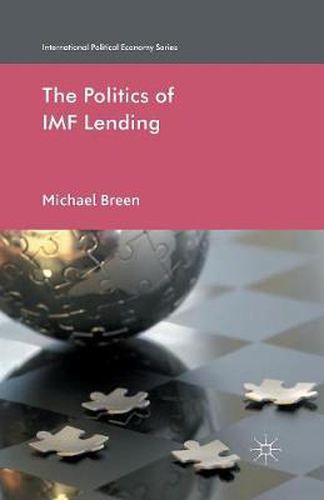Readings Newsletter
Become a Readings Member to make your shopping experience even easier.
Sign in or sign up for free!
You’re not far away from qualifying for FREE standard shipping within Australia
You’ve qualified for FREE standard shipping within Australia
The cart is loading…






This title is printed to order. This book may have been self-published. If so, we cannot guarantee the quality of the content. In the main most books will have gone through the editing process however some may not. We therefore suggest that you be aware of this before ordering this book. If in doubt check either the author or publisher’s details as we are unable to accept any returns unless they are faulty. Please contact us if you have any questions.
As national governments continue to disagree over how to respond to the aftermath of the global financial crisis, two of the few areas of consensus were the decisions to increase the IMF’s capacity to respond and remove the policies designed to limit the use of its resources. Why was this massive increase in the size of the IMF, accompanied by the removal of policies designed to limit moral hazard, such an easy point of consensus? Michael Breen looks at the hidden politics behind IMF lending and proposes a new theory based on shareholder control. To test this theory, he combines statistical analysis with a sweeping account of IMF lending and conditionality during two global crises; the European sovereign debt crisis and the Asian financial crisis.
$9.00 standard shipping within Australia
FREE standard shipping within Australia for orders over $100.00
Express & International shipping calculated at checkout
This title is printed to order. This book may have been self-published. If so, we cannot guarantee the quality of the content. In the main most books will have gone through the editing process however some may not. We therefore suggest that you be aware of this before ordering this book. If in doubt check either the author or publisher’s details as we are unable to accept any returns unless they are faulty. Please contact us if you have any questions.
As national governments continue to disagree over how to respond to the aftermath of the global financial crisis, two of the few areas of consensus were the decisions to increase the IMF’s capacity to respond and remove the policies designed to limit the use of its resources. Why was this massive increase in the size of the IMF, accompanied by the removal of policies designed to limit moral hazard, such an easy point of consensus? Michael Breen looks at the hidden politics behind IMF lending and proposes a new theory based on shareholder control. To test this theory, he combines statistical analysis with a sweeping account of IMF lending and conditionality during two global crises; the European sovereign debt crisis and the Asian financial crisis.